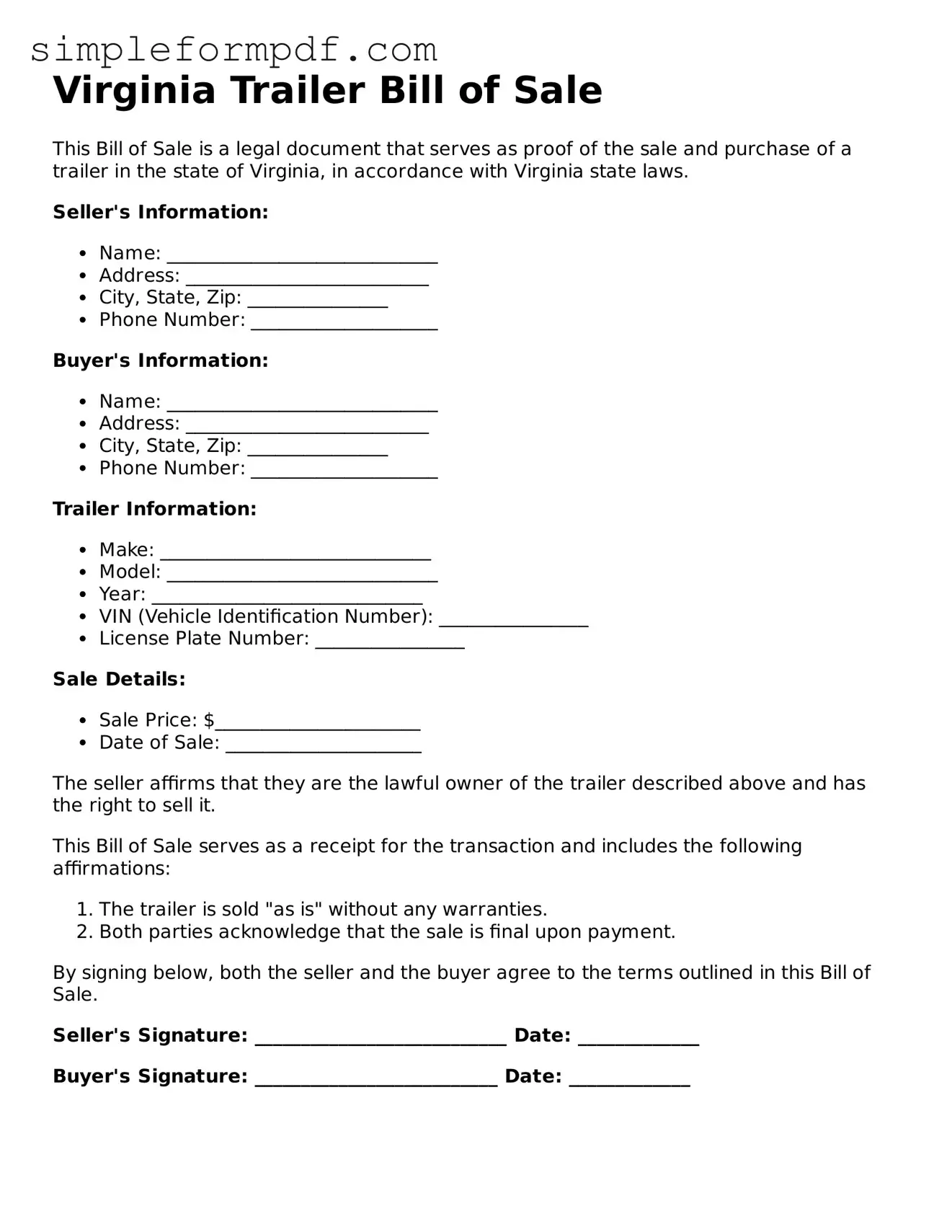Free Trailer Bill of Sale Form for the State of Virginia
The Virginia Trailer Bill of Sale form is a legal document that facilitates the transfer of ownership for a trailer from one party to another. This form serves as proof of the transaction and includes essential details such as the buyer's and seller's information, trailer description, and purchase price. Ensure a smooth sale by filling out the form accurately and completely; click the button below to get started!
Launch Editor

Free Trailer Bill of Sale Form for the State of Virginia
Launch Editor
Need instant form completion?
Finish Trailer Bill of Sale online in just a few minutes.
Launch Editor
or
Download PDF
